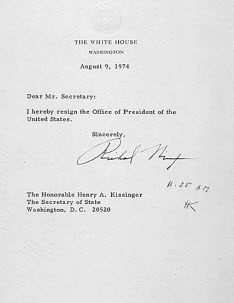
I recently read a fictionalized letter of resignation from a SVP, Sales (to a CEO) over on the Sales Benchmark Index blog. It is worth a full read, but here is a quick excerpt:
The revenue goal you have set for me is not based in reality. It is unfair to set my goals based some high level Gartner numbers. For three years, I have submitted a proposal to set the number correctly and it has been rejected. Give the new guy a chance.
You have 16 items on my priority list. No one can do 16 things well. Each of these has been labeled mission critical. As a result, I have become a bad husband and father. Don’t ruin another man’s life. Not all opportunities are created equal. Pick a few things.
While entertaining, and in many instances probably quite true, it got me thinking. This head of sales had his point of view. But there are two sides to every coin, are there not?
What would a CEO response look like?
So here goes a (tongue-in-cheek) attempt at a reply:
Dear Bob,
I accept your letter of resignation as VP, WW Sales and appreciate the time you took to detail your reasons for departure. In the same vein, I thought I’d share some feedback on your performance.
I understand the revenue goal we set was a stretch. We decided to base it on historical performance, market potential and corporate goals. The numbers you proposed always seemed to ensure the goal of achieving your bonus – rather than our Board’s satisfaction with overall company performance. Also, I’ll make sure to let Gartner know that they should reach out to you for insights on properly sizing our market.
I apologize for your 16-item priority list. To my mind, 12 of those are basics that any head of sales should have brought to the table. In hiring your replacement, we’ll make sure to not repeat this error. As not only the CEO, but also the company’s founder, please tell me more about the demands of your role and your need for work-life balance. Would you suggest we offer marriage counseling and parenting classes as part of the incentive package?
You state that our products are commodities. I remember how hard you fought to maintain a face-to-face (read: high cost) field sales force. It appears that your hiring profile was out of alignment with the requirements of our market. And your repeated refrain was to request more headcount for road-warrior enterprise reps. No wonder I had the CFO monitor your hiring plans.
I know that you struggled to form a relationship with our CMO. Let me offer some coaching. Sales is about attunement. Perhaps a little more perspective taking and a little less storming and screaming “these leads aren’t ready to buy” would have improved matters. FYI, since your departure we’ve built an inside sales team and are observing an unfamiliar phenomenon: new pipeline from inbound leads.
Finally, I am sorry you found our culture too rigid. Having “military-like commands” that are demoralizing is not my aim. The lesson from the military I wish you had absorbed is “the sergeants run the army.” During your tenure, we had 80% attrition in front-line sales managers. I should have been more supportive of their needs and their success. I mistakenly thought that was your job. I’ve often heard the maxim, “People join companies, they leave bosses.” I now see the truth in it.
Bob, I wish you every success in your new venture. We have learned much from you and will work hard to build a better organization. And we will no longer tolerate a bad sales leader.
Godspeed!
-a CEO
So this was a fun exercise.
What would you have added to either letter? C’mon get snarky with me!
/em>




It would be cool to have read this letter from the CEO before Bob joined the company. No leadership here only production pressure. Sounds a lot like medicine. Be very frightened if you enter a healthcare organization that is run like this; and many are.